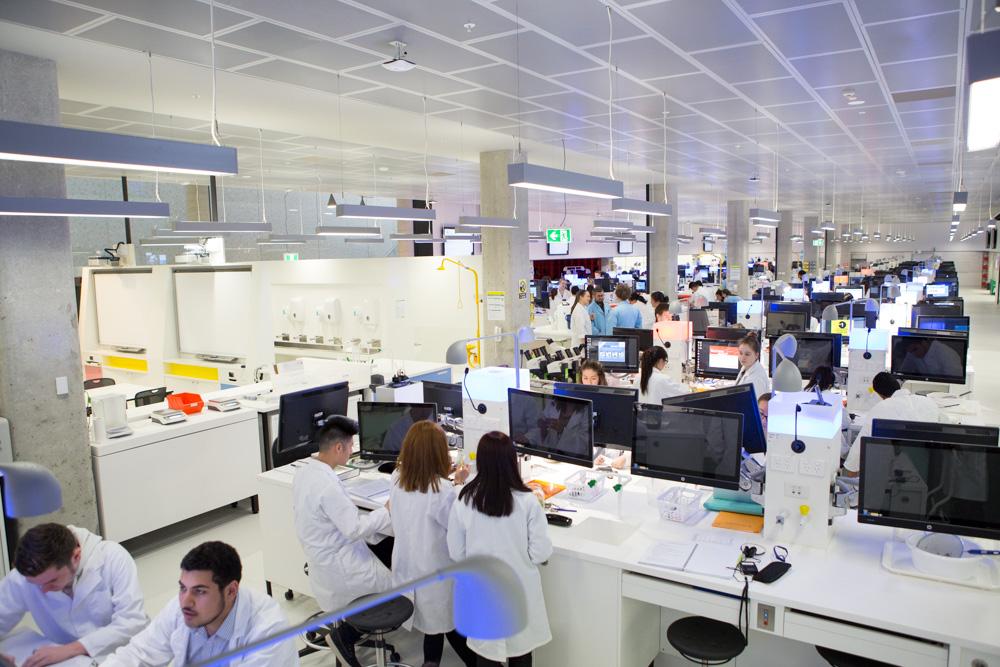
Keywords: first year, collaboration, YouTube.
Faculty: Science
Number of students enrolled (Autumn session): 1100
Chemistry 1 is an introductory first year subject designed to develop students’ understanding of basic principles like matter, chemical reactions and atomic structure. The structure of teaching and learning activities for this subject features diverse content, with weekly lectures, collaborative laboratory sessions and independent learning activities. Students gain an understanding of theory in their lectures, which they then apply in compulsory practical labs.
What's happening?
Integrated Learning Activity
Over the 11-week session, learning activities in lectures and lab sessions are closely interwoven. Students are aware that they must attend the lecture to learn about what they will be doing in the lab. The various elements in the course are designed to complement one another in a coherent whole.
Why do we think it's successful?
First year learning support
Special attention is given to designing the lessons for first year experience with various ways of helping new students cope with the demands of university learning:
- An introductory video is shown prior to the first class with an overview of the subject, giving an explanation of what the subject is about and what topics will be discussed. Students who have limited familiarity with chemistry have opportunities to review the topics before they are covered in class.
- Weekly PowerPoint slides and lecture notes are made available prior to lectures. Students are encouraged to review the material, print the notes and bring them to class. This gives students freedom to focus on the lecture, rather than worry about taking notes. The aim here is to prepare students for what will be discussed in class, but also to support them in managing the information. There are blank spaces left in the notes for students to fill in when questions are asked in the lecture and calculations are demonstrated and discussed.
- Each lab has 32 students, split into two groups of 16 students, with each group allocated one Practical Demonstrator to work closely with across the 11-week session. In these classes students will often work in groups of three or four, under the supervision of the Demonstrator. One academic teaches the full 11 weeks of lecture sessions. These are seen as good teaching strategies for first year students, who acquire a sense of belonging through participating in the small group tutorials, and experience continuity with only one lecturer in the large classes.
Rapport and passion for the subject
Having a good rapport with students and passion for the subject is also key for first year students like those in Chemistry 1. In particular, the lecturer stresses the importance of creating a convivial learning space that is welcoming for the students, and shows how interesting and exciting chemistry can be.
Engaging teaching and learning strategies
YouTube videos are incorporated into lectures, especially for demonstrations of chemical reactions that cannot be performed in a lecture theatre. During demonstrations, the lecturer engages the students by inviting them to be part of the process as an active audience. Students participate in deciding how calculations should be completed by voting in multiple choice scenarios, which also gives the lecturer the opportunity to check students' thinking processes.
Photo credit: Anna Zhu

